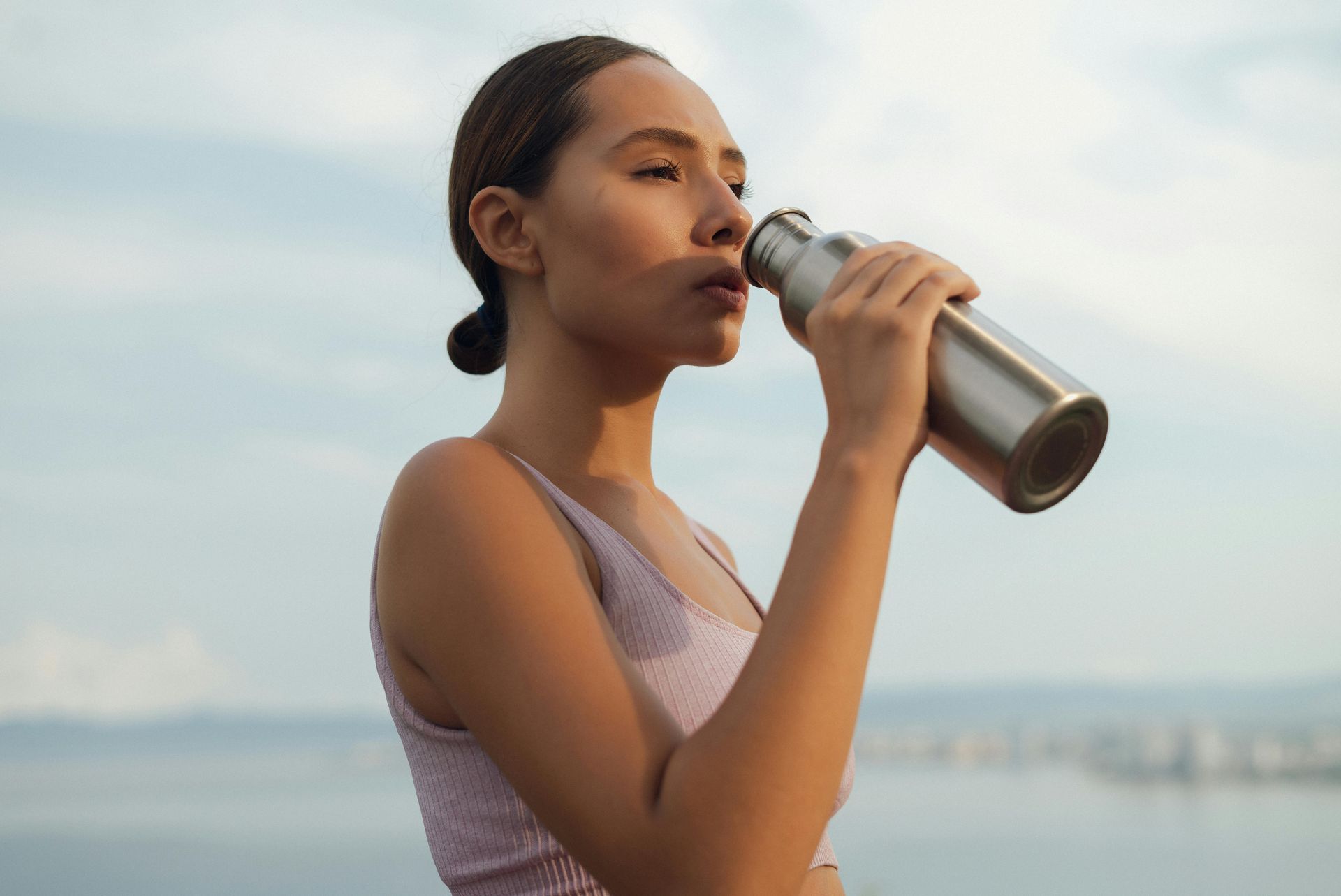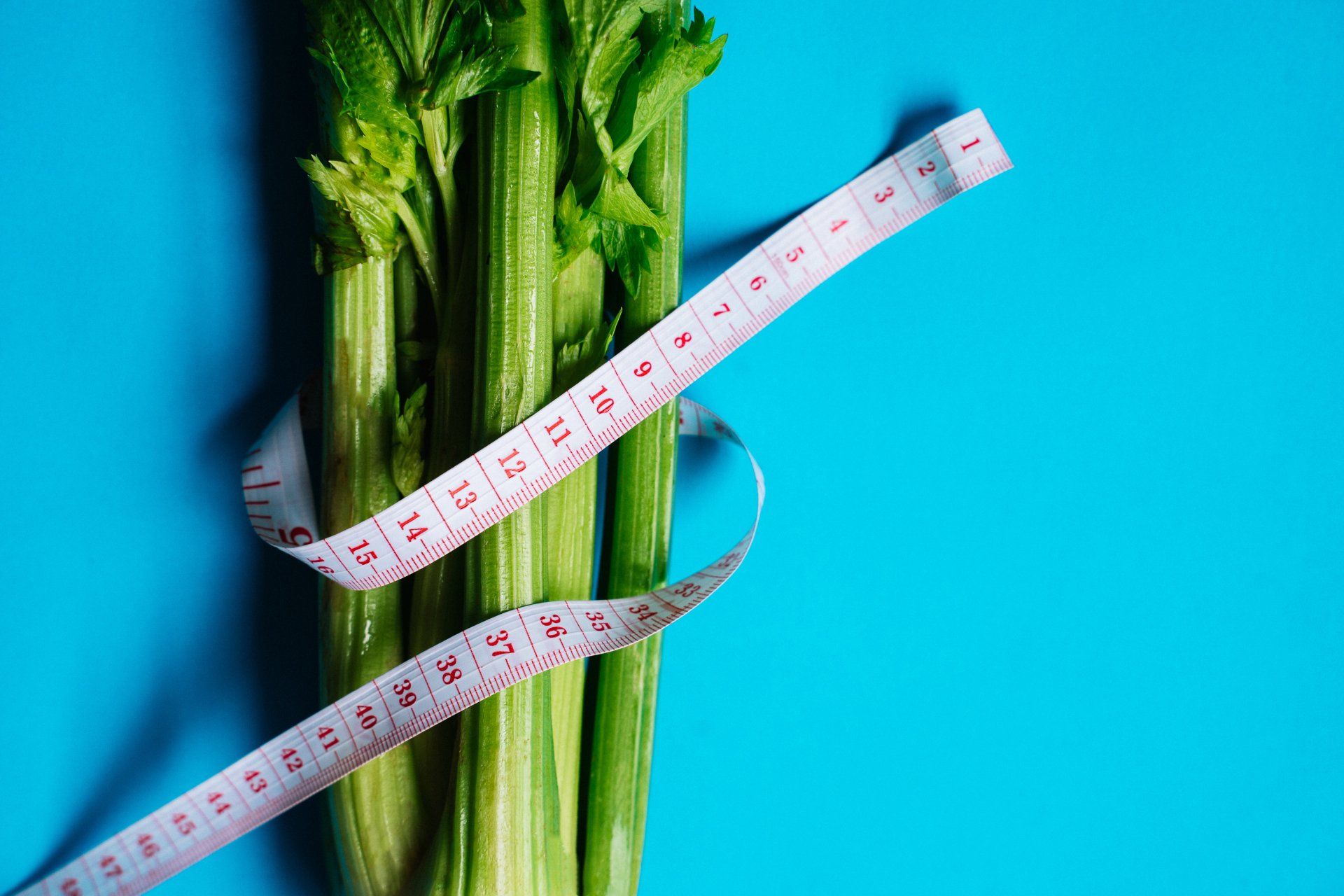How Important is Water for Weight Loss in Your Diet?
It’s not uncommon to hear that increasing your water intake can help with weight loss. The majority of our bodies are made up of water and it plays a big part in our overall health. While consuming water in the form of a beverage, we also consume it in some of the foods that we eat. It’s important to understand how adequate hydration can help you along your weight loss journey. Drinking water can help you lose weight by reducing feelings of hunger and helping to manage calorie intake.
Lose Weight: The Science Behind Hydration
Hydration is a fascinating and vital process that involves the regulation of water and electrolytes within our bodies. When we drink water, it is absorbed into the bloodstream and distributed to various cells and tissues. This process is crucial for several bodily functions, such as regulating body temperature, transporting nutrients and oxygen to cells, and removing waste products.
Drinking water can help with weight loss by increasing feelings of fullness, reducing appetite, and boosting metabolism. Even mild dehydration can slow down your metabolism, making it harder to lose weight. By staying adequately hydrated, you can reduce your overall calorie intake because water helps you feel fuller for longer, leading to fewer calories consumed throughout the day. Additionally, proper hydration can improve body composition scores, which are indicators of healthy fat percentages and overall metabolic health.
Drinking Water Can Help You Burn More Calories
Drinking cold or room temperature water can increase the number of calories that your body burn when it’s in a state of rest. Research indicates that sufficient water intake correlates with a lower body mass index and healthier body composition, particularly during weight management efforts. This is also referred to your resting energy expenditure and keeps your body burning calories even when you’re resting.

Understanding Water Weight and Its Impact on Body Weight
Water weight, also known as water retention, refers to the amount of water stored in the body. This can fluctuate due to various factors like hormonal changes, salt intake, and overall hydration levels. Interestingly, water weight can account for up to 10% of a person’s total body weight.
Drinking enough water can help reduce water weight by improving circulation, lowering sodium levels, and increasing urine production. This can also help alleviate bloating and discomfort caused by water retention. However, it’s important to note that drinking excessive amounts of water can lead to an imbalance of electrolytes, which can be harmful. Moderation is key to maintaining a healthy balance.
Drinking Water is a Natural Appetite Suppressant
When you get full, your stomach will tell your brain that it is full and signal it to stop consuming food. By drinking water, you can fill that space in your stomach, and it will tell your brain that you’re not hungry, or less hungry. Staying hydrated can also improve metabolic processes and support overall weight loss efforts by aiding in reducing body fat. We also tend to confuse thirst with hunger so drinking water when you think about snacking, grab a glass of water and see if that curbs your hunger.
The Importance of Hydration in Exercise and Muscle Growth
Proper hydration is essential for optimal exercise performance and muscle growth. Water plays a critical role in regulating body temperature, transporting nutrients and oxygen to cells, and removing waste products. Even mild dehydration can negatively impact athletic performance, leading to fatigue, dizziness, and muscle cramps.
To maximize your exercise results, it’s important to drink water before, during, and after your workout. This can help improve performance, reduce muscle soreness, and support muscle growth. Aim to drink at least 17-20 ounces of water 2-3 hours before exercising, and 8-10 ounces every 10-15 minutes during your workout. Staying hydrated can also reduce the risk of injury and enhance overall recovery.
It Will Help Cleanse Your Body of Waste
Water is essential to keep your kidneys filtering toxins and retaining essential electrolytes and other nutrients. Proper hydration offers numerous health benefits, including improvements in skin health, brain functionality, and blood pressure regulation. When the body is dehydrated, it’s unable to remove toxins and waste which could lead to keeping on a few more pounds than you’d like. Symptoms of a buildup of water include bloating, constipation, and tiredness. While water can prevent waste build up, it can also help you recover from losing fluids due to diarrhea and indigestion.
How Much Water Should You Drink?
The amount of water you should drink daily is a common topic of debate. While there is no one-size-fits-all answer, a general recommendation is to drink at least 8-10 cups (64-80 ounces) of water per day. However, this can vary depending on factors such as age, sex, weight, activity level, and climate.
It’s important to recognize that individual water needs can vary greatly. For instance, athletes or individuals who engage in strenuous physical activity may need to drink more water to stay hydrated. Similarly, people living in hot and humid climates may need to increase their water intake to replace lost fluids. Listen to your body and adjust your water consumption based on your specific needs.
Factors That Influence Water Intake
Several factors can influence an individual’s water intake needs. Age, sex, weight, activity level, and environmental conditions all play a role in determining how much water you should drink. For instance, older adults may need more water due to a decreased thirst sensation and changes in body composition. Pregnant and breastfeeding women also require more water to meet increased fluid needs. Athletes and those who engage in strenuous physical activity need additional water to replenish lost fluids and electrolytes. Additionally, people living in hot and humid climates may need more water due to increased fluid loss through sweating. Understanding these factors can help you tailor your water intake to your specific needs, ensuring you stay adequately hydrated.
DRINKING WATER Prevents Over Consumption of POOR Liquid Calorie Intake from Beverages
Energy drinks, juice, sports drinks, and alcoholic beverages almost always add to your liquid calorie intake, contributing to your daily calorie counts. Water is a great alternative to ensure that you’re not drinking your calories and will help you lose weight over time.
Tips for Drinking More Water for Weight Loss
Staying hydrated can be challenging, but there are several strategies to help you increase your water intake:
- Carry a refillable water bottle with you throughout the day. Set reminders on your phone to drink water at regular intervals.
- Infuse your water with fruits, herbs, or cucumber for a refreshing taste.
- Make water more accessible by keeping a pitcher in the fridge or a bottle on your desk.
- Monitor your urine output to ensure you’re drinking enough water (aim for a pale yellow color).
Remember, drinking water is just one part of a healthy weight loss program. Combining it with a balanced diet and regular exercise can help you achieve your weight loss goals and maintain overall health and well-being.
Create a Hydration Routine
Creating a hydration routine can help ensure that you drink enough water throughout the day. Here are some tips to help you create a hydration routine:
- Drink a glass of water as soon as you wake up to rehydrate after a night of sleep.
- Keep a water bottle with you throughout the day and take sips regularly.
- Infuse your water with fruits or herbs to give it a refreshing taste.
- Make water your go-to beverage instead of sugary drinks.
- Monitor your urine output and color to ensure you are drinking enough water.
By establishing a consistent hydration routine, you can make drinking water a natural part of your daily life, supporting your weight loss and overall health goals.
Eat Water-Rich Foods
In addition to drinking water, eating water-rich foods can also contribute to your daily hydration needs. Some examples of water-rich foods include:
- Watermelon (92% water)
- Cucumbers (96% water)
- Strawberries (92% water)
- Pineapple (88% water)
- Grapefruit (91% water)
- Celery (95% water)
Incorporating these foods into your diet can help you stay hydrated and support overall health. Not only do these foods provide hydration, but they also offer essential vitamins and minerals that contribute to a balanced diet.

Without Adequate Hydration, Your Body Can’t Burn Fat
Your body uses water to interact with fats and create glycerol and fatty acids, allowing your body to effectively metabolize carbs and stored fats, including excess weight. Water will help you lose weight effectively by burning those fats that you consume in food and beverages while also burning stored fat.
If you’re wondering how much water you should be consuming, there is no ‘one-size-fits-all’ solution. The recommended amount of water to be consumed will depend on your activity level, age, outdoor elements, and more. Although there is not answer to exactly how much you should drink, there are some general rules that you can follow to ensure you’re consuming an amount that will benefit you.
With each meal that you eat, drink a minimum of one 8-ounce cup of water.
Carry a reusable water bottle with you as much as possible.
Drink extra amounts of water if you’re in hot, humid or sunny conditions.
If your activity levels increase, ensure that you’re drink more water.
While you’re going though one of our programs at Slim4Life in Texas, we will help you determine how much water you should be consuming, how to reach that amount, and what will help you be successful and feel good. Our approach to weight loss is one-on-one counseling that will help you make the most out of your overall health. If you’re ready to start shredding weight, Slim4Life is ready to give you the tools that you need. Schedule your consultation today and get your life back!
Water’s Effect on Metabolism and Body Temperature
Drinking water can have a significant impact on metabolism and body temperature. Even mild dehydration can slow down metabolism, leading to weight gain and decreased energy levels. Drinking water can help boost metabolism by increasing the breakdown of fat cells and improving insulin sensitivity. Additionally, water helps regulate body temperature, which is essential for proper bodily functions. When the body is dehydrated, it can’t cool itself properly, leading to heat-related illnesses. Staying hydrated ensures that your body can maintain a stable temperature and function efficiently, supporting your weight loss efforts.
Debunking Myths: Water’s Limitations in Weight Loss
While drinking water can certainly support weight loss efforts, it is not a magic bullet. Some common myths about water and weight loss include:
- Drinking water can lead to rapid weight loss: While drinking water can help with weight loss, it is not a quick fix. Sustainable weight loss requires a combination of a healthy diet, regular exercise, and lifestyle changes.
- Drinking water can replace diet and exercise: While drinking water is essential for overall health, it cannot replace a healthy diet and regular exercise. A balanced diet and regular physical activity are crucial for weight loss and overall health.
- Drinking water can lead to weight loss without any effort: Drinking water can certainly support weight loss efforts, but it requires effort and commitment to make sustainable lifestyle changes.
By understanding the limitations of water in weight loss, individuals can set realistic expectations and make informed decisions about their weight loss journey. Drinking water is a valuable tool in your weight loss arsenal, but it works best when combined with other healthy habits. Would you like to work with experts who know a thing or two about weight loss and water consumption? Contact Slim4Life for a
no obligation consultation.





